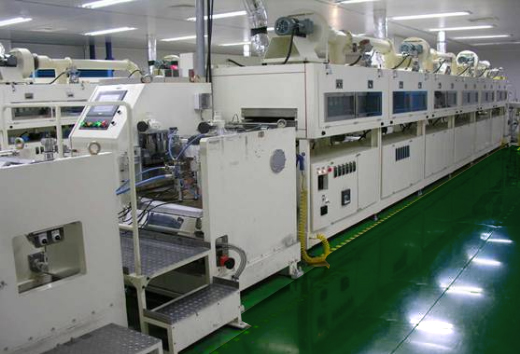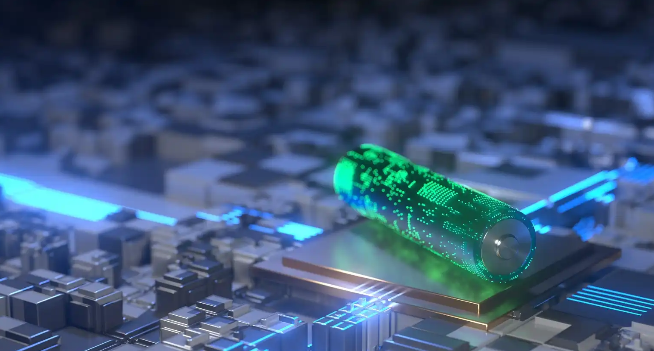LiFePO4 Battery Chart: A Comprehensive Guide to Lithium Iron Phosphate Batteries
Lithium ion batteries have revolutionized the way we power our everyday devices, from smartphones to electric cars. The most common type of lithium ion battery is the lithium cobalt oxide battery, but there are several other types, each with its own unique advantages and disadvantages. One such type is the lithium iron phosphate (LiFePO4) battery. In this article, we will delve into the world of LiFePO4 batteries, exploring their characteristics, applications, and limitations.
What is a LiFePO4 Battery?
A lithium iron phosphate battery is a rechargeable battery that uses an iron-based cathode and a lithium ion-based electrolyte. Unlike other types of lithium ion batteries, LiFePO4 batteries do not contain cobalt, which is a relatively rare and expensive element. Instead, they use iron, which is abundant and inexpensive. This makes LiFePO4 batteries more cost-effective and environmentally friendly than other types of lithium ion batteries.
Characteristics of LiFePO4 Batteries
One of the most notable characteristics of LiFePO4 batteries is their safety. Unlike other types of lithium ion batteries, LiFePO4 batteries are much less prone to overheating and catching fire. This is because they have a more stable chemical structure, which makes them less reactive and less likely to undergo thermal runaway. Additionally, LiFePO4 batteries have a longer lifespan than other types of lithium ion batteries, with a cycle life of up to 2,000 cycles.
Another important characteristic of LiFePO4 batteries is their energy density. LiFePO4 batteries have a lower energy density than other types of lithium ion batteries, which means they have a lower capacity for storing energy. This makes them less suitable for applications that require high energy density, such as electric cars and drones. However, LiFePO4 batteries have a higher power density than other types of lithium ion batteries, which means they can deliver more power in a shorter amount of time. This makes them more suitable for applications that require high power output, such as power tools and backup power supplies.
Applications of LiFePO4 Batteries
LiFePO4 batteries are commonly used in a wide range of applications, including:
1. Solar power systems – LiFePO4 batteries are ideal for use in solar power systems because they have a long lifespan, can withstand high temperatures, and can be charged and discharged quickly.
2. Electric bicycles – LiFePO4 batteries are commonly used in electric bicycles because they have a high power density and can deliver a lot of power in a short amount of time.
3. Marine applications – LiFePO4 batteries are used on boats and other watercraft because they are resistant to corrosion and can withstand harsh marine environments.
4. Backup power supplies – LiFePO4 batteries are often used as backup power supplies for critical equipment, such as medical devices and data centers, because of their high power density and long lifespan.

Limitations of LiFePO4 Batteries
Despite their many advantages, LiFePO4 batteries do have some limitations. One of the main limitations is their energy density, which is lower than other types of lithium ion batteries. This means they are not suitable for applications that require high energy density, such as electric cars and drones. Additionally, LiFePO4 batteries are more expensive than other types of lithium ion batteries, which can make them less cost-effective for some applications.
Conclusion
LiFePO4 batteries are a type of lithium ion battery that offer many advantages over other types of lithium ion batteries. They are safer, have a longer lifespan, and are more environmentally friendly. They are commonly used in a wide range of applications, including solar power systems, electric bicycles, and backup power supplies. However, they do have some limitations, such as their lower energy density and higher cost. Overall, LiFePO4 batteries are a promising technology that will continue to play an important role in the future of energy storage.
-
 Your car starter battery is one of the most important components of your vehicle electrical system. It provides the power necessary to start your engine, and without a reliable battery, you could find yourself stranded on the side of the road. In this article, we take a look at some of the key features to consider when choosing a car...En savoir plus
Your car starter battery is one of the most important components of your vehicle electrical system. It provides the power necessary to start your engine, and without a reliable battery, you could find yourself stranded on the side of the road. In this article, we take a look at some of the key features to consider when choosing a car...En savoir plus -
 Are you tired of constantly replacing your battery or dealing with underperforming power sources? Look no further than the 12V 100Ah LiFePO4 Lithium Iron Phosphate Battery, the efficient and long-lasting power solution you've been searching for. This battery is made with advanced LiFePO4 technology, which is known for its high efficiency and durability. Compared to traditional lead-acid batteries, LiFePO4...En savoir plus
Are you tired of constantly replacing your battery or dealing with underperforming power sources? Look no further than the 12V 100Ah LiFePO4 Lithium Iron Phosphate Battery, the efficient and long-lasting power solution you've been searching for. This battery is made with advanced LiFePO4 technology, which is known for its high efficiency and durability. Compared to traditional lead-acid batteries, LiFePO4...En savoir plus -
 Golf carts have become a common sight on golf courses around the world. These small vehicles offer golfers a convenient way to navigate the course and carry their clubs. One crucial component that powers these carts is the golf cart battery. This article explores the importance of a reliable battery and the benefits it provides. A golf cart battery...En savoir plus
Golf carts have become a common sight on golf courses around the world. These small vehicles offer golfers a convenient way to navigate the course and carry their clubs. One crucial component that powers these carts is the golf cart battery. This article explores the importance of a reliable battery and the benefits it provides. A golf cart battery...En savoir plus -
 Introduction: In recent years, the demand for energy storage has increased significantly due to the growing reliance on renewable energy sources and the need to reduce greenhouse gas emissions. Among various energy storage technologies, lithium-ion batteries have emerged as a promising solution. This article will delve into the advantages, challenges, and future prospects of lithium-ion batteries as the future of...En savoir plus
Introduction: In recent years, the demand for energy storage has increased significantly due to the growing reliance on renewable energy sources and the need to reduce greenhouse gas emissions. Among various energy storage technologies, lithium-ion batteries have emerged as a promising solution. This article will delve into the advantages, challenges, and future prospects of lithium-ion batteries as the future of...En savoir plus -
 Lithium Iron Phosphate Like other batteries, LiFePO4 batteries are made from electricity-generating electrochemical cells that power electrical devices. A LiFePO4 battery consists of a positive electrode, positive electrode, separator, electrolyte, positive and negative current collectors. The positive terminal of the battery is called the cathode and the negative terminal is called the anode. Anode terminal as Li-ion source. The electrolyte...En savoir plus
Lithium Iron Phosphate Like other batteries, LiFePO4 batteries are made from electricity-generating electrochemical cells that power electrical devices. A LiFePO4 battery consists of a positive electrode, positive electrode, separator, electrolyte, positive and negative current collectors. The positive terminal of the battery is called the cathode and the negative terminal is called the anode. Anode terminal as Li-ion source. The electrolyte...En savoir plus -
 In today's world, power supply is essential for most of our daily activities. Whether we need to charge our mobile phones, laptops, or other electronic devices, we require a reliable and efficient power source. Traditional lead-acid batteries have been the go-to power source for many years, but they have some significant drawbacks, including weight, size, and maintenance. However, with the...En savoir plus
In today's world, power supply is essential for most of our daily activities. Whether we need to charge our mobile phones, laptops, or other electronic devices, we require a reliable and efficient power source. Traditional lead-acid batteries have been the go-to power source for many years, but they have some significant drawbacks, including weight, size, and maintenance. However, with the...En savoir plus -
 In today's fast-developing technological era, lithium batteries, as a leader in the field of energy storage, are leading the wave of global energy transition and green development. In order to help you better understand lithium batteries, this article will thoroughly explore their working principle, application field, technological progress, and future development trends to provide you with strong support for your...En savoir plus
In today's fast-developing technological era, lithium batteries, as a leader in the field of energy storage, are leading the wave of global energy transition and green development. In order to help you better understand lithium batteries, this article will thoroughly explore their working principle, application field, technological progress, and future development trends to provide you with strong support for your...En savoir plus

